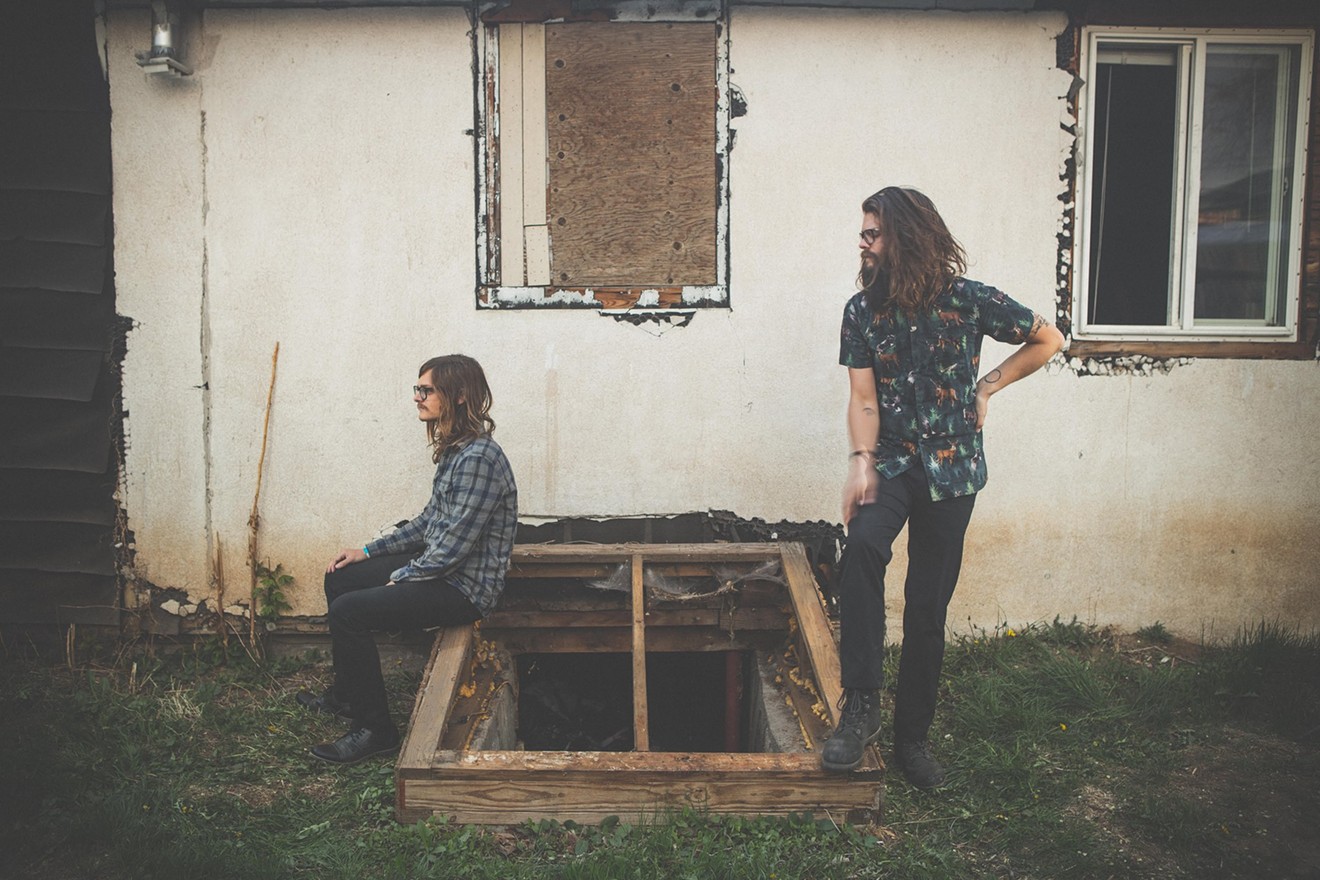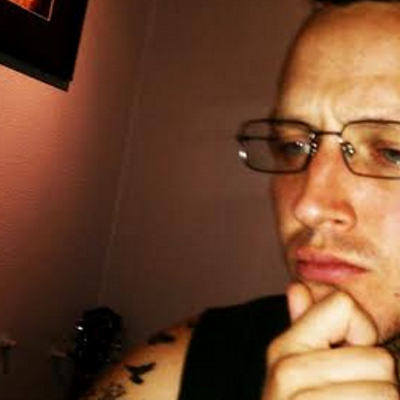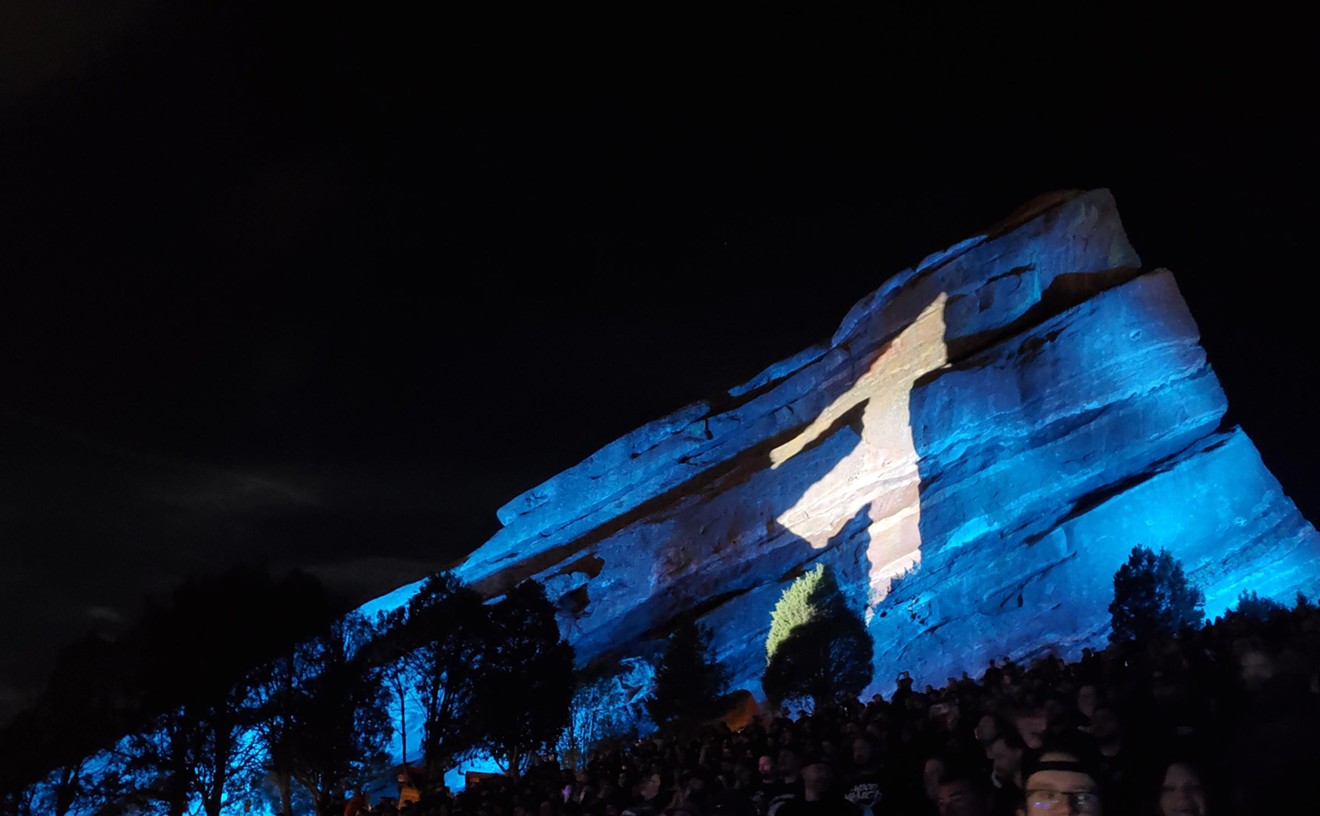"As humans, we really don't contribute anything to the planet," Anthony Ruptak says about lyrics on his latest EP, Don't Let it Kill You, being released this Saturday, July 1, at the Walnut Room. "The most useful thing we can do as humans is to die, be put in the forest and let the forest floor eat us away and later create new life."
At surface value, that statement seems macabre and bleak, but at its heart it's thoughtful and empathetic. Ruptak's world view and his ability to find positivity and growth in even the most dismal of subjects is a dichotomy he balances in his personal life and throughout his latest EP. How can we love people we have nothing in common with? How do we fondly remember people who have died? How do we remain vigilant in a world so hell bent on tearing us down? Ruptak tackles these subject and more over moody and pulsing melodies that range from a slow dirge to a triumphant hymn.
Westword: On Don't Let it Kill You, you played all of the instruments. Was that a decision to have more control over everything?
Anthony Ruptak: It’s so much better for me mentally to do everything myself instead of trying to direct other people. In the past, I’ve gotten frustrated if it’s not exactly what I wanted, but I would usually let it go. To do it all myself is exactly what I want to hear. I recorded everything in eighteen hours at Matt Tanner’s house studio, Catadawn. It was 100 percent outboard analog with no digital anything, the reverb is twelve-foot-long plate reverb; it was really special.
If this was a decision to have complete control, explain your brother Matt’s contributions and role. [Matt plays drums and sings on the album.]
He’s there because as far as I’m concerned, he and I will always play together. We’re best buds, and we’ve always lived together and played music together. We have dozens of hours of improvised home recordings. I remember singing church songs at the top of the stairs for the family at Thanksgiving when we were two feet tall. I think that brother dynamic is really cool because we never have to rehearse. We have this ESP and both like the same things musically. It just works really well.
From the opening track, this album is a constant build of a mood. Do you feel that is a dark mood or a positive one?
I’d say a bit of both. The arc of this album is that it starts with love and ends with death. It deals with the grimness of the world we're living in. It talks of insecurities and nightmares. But the death part is not negative. I don’t view it as a dark thing. It deals with triumph.
The track "Eulogy ii" is essentially my dream of what I wish would happen to my body after I die. It comes from a place of enlightenment, and it’s way less calculated than a few of the other records I’ve put out. It comes from my current worldview and mental state.
The title of this record alone is advice. Can people learn things from listening?
I think so. It pokes fun at the insanity of us being mean to each other. There's one lyric that mentions a school bus cutting off an ambulance and examining the deeper meaning behind that happening. Seeing people hurting and being in need, it just deals with people not having good intentions. All the songs were written within the election period.
I found out people I love believe in certain things and change my perspective on them. That is almost stunning and makes you recoil in confusion and ask, “Who is this person?” I went through a lot of that with my family. There have been major peaks and valleys with that always, but the election really galvanized some opposing world views and really showed me what people are capable of as far as shutting out people.
When you come from a Christian family and your whole existence growing up is "love thy neighbor," and then suddenly it’s "keep your neighbor as far away as possible and judge them," it’s astonishing. This album draws heavily from that emotion.
You host a weekly open mic at Syntax Physic Opera. What is is like watching people play music publicly, possibly for the first time.
It’s one of the most special experiences I've ever had. I’ve known John [Bitz, owner of Syntax] for a long time. He pulled me aside after a show I played at the Meadowlark eight years ago and told me I was good and that I should keep doing it. He gave me a list of bands that I should get in touch with and play with. I was kind of taken aback, but he's been a solid friend and role model since.
When he opened up Syntax, he contacted Rachel Pollard and I to do the open mic. He was specific in that he wanted it to be a songwriter's open mic, not just your standard open mic where people played covers. John's a writer himself, so he wanted that stipulation. He wanted to create a space that truly valued its artists.
Many people have written that song that day and are playing it for the first time, getting to crack that seal, and experience people doing that is a huge honor and it's inspiring.
It’s cool to watch people from the point of view of where I’m at now, putting myself back into when I was playing open mics and being nervous as shit. I did that almost every night of the week and fell in love with that community.
What is different about that community from the musicians you play shows with regularly?
They are more positive, [laughs]!They have that unabashed glimmer of hope and they all really want to be musicians and know it’s gonna be fun. They never fail to amaze me. There's always something really surprising, and it’s just cool to be around music as much as possible.
Anthony Ruptak w/ in/planes, the Still Tide, 7 p.m. Saturday, July 1, Walnut Room, 3131 Walnut Street, $10-15, 303-295-1868.
[
{
"name": "Air - MediumRectangle - Inline Content - Mobile Display Size",
"component": "12017618",
"insertPoint": "2",
"requiredCountToDisplay": "2"
},{
"name": "Editor Picks",
"component": "17242653",
"insertPoint": "4",
"requiredCountToDisplay": "1"
},{
"name": "Inline Links",
"component": "18838239",
"insertPoint": "8th",
"startingPoint": 8,
"requiredCountToDisplay": "7",
"maxInsertions": 25
},{
"name": "Air - MediumRectangle - Combo - Inline Content",
"component": "17261320",
"insertPoint": "8th",
"startingPoint": 8,
"requiredCountToDisplay": "7",
"maxInsertions": 25
},{
"name": "Inline Links",
"component": "18838239",
"insertPoint": "8th",
"startingPoint": 12,
"requiredCountToDisplay": "11",
"maxInsertions": 25
},{
"name": "Air - Leaderboard Tower - Combo - Inline Content",
"component": "17261321",
"insertPoint": "8th",
"startingPoint": 12,
"requiredCountToDisplay": "11",
"maxInsertions": 25
}
]












